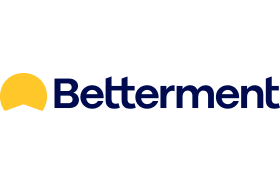Cast Your Vote
Would you recommend Betterment to your friends?
Highlights
SuperMoney Disclosure: SuperMoney.com is an independent, advertising-supported service. The owner of this website may be compensated in exchange for featured placement of certain sponsored products and services, or your clicking on links posted on this website. Read more...
Editorial Disclaimer: Editorial and user-generated content on this page is not provided or commissioned by the issuer. Opinions expressed here are the author's alone and have not been approved or otherwise endorsed by any financial institution, including those that are advertising partners.
Other Services by Betterment LLC
Betterment Community Reviews
Would you recommend Betterment to your friends?
SuperMoney Net Recommendation Score
This product is mostly recommended by SuperMoney users with a score of +36, equating to 3.7 on a 5 point rating scale.
+36
-100
0
+100
No one recommends
Everyone recommends
Recommendation score measures the loyalty between a provider and a consumer. It's at +100 if everybody recommends the provider, and at -100 when no one recommends.
There are currently no reviews.
